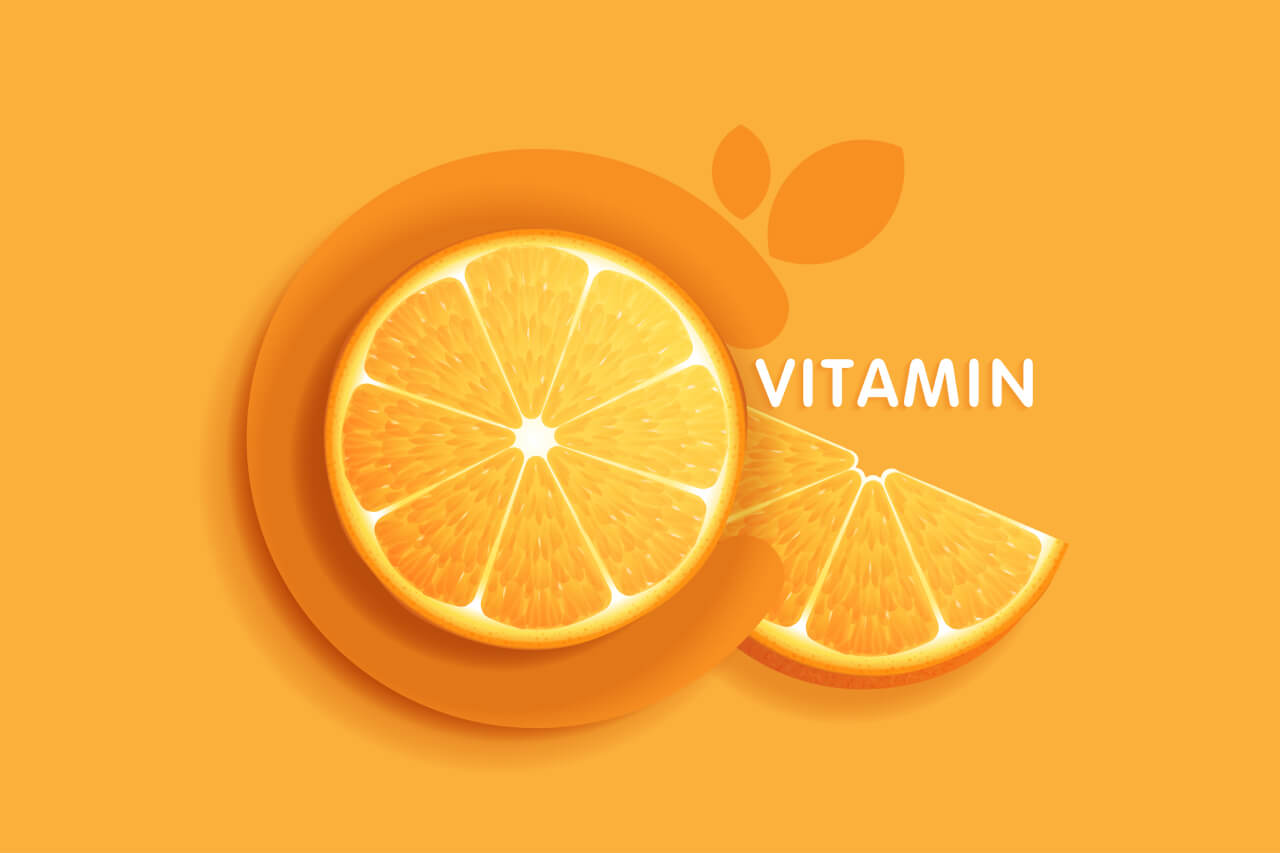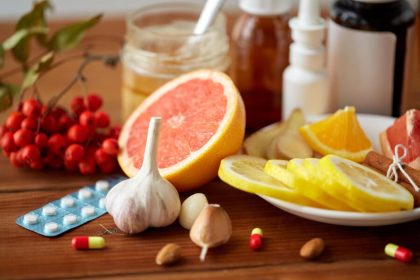When it comes to maintaining a healthy immune system and overall well-being, vitamin C plays a vital role. Considered an essential nutrient, vitamin C offers a wide range of health benefits, from boosting immunity to aiding in collagen production. While many people turn to supplements for their vitamin C intake, it’s always best to obtain nutrients from whole food sources. In this article, we will explore the top sources of vitamin C and provide a comprehensive list of foods to include in your diet.
By incorporating a variety of vitamin C-rich foods into your meals, you can harness the power of this important antioxidant and support your body’s natural defense mechanisms. From citrus fruits to leafy greens, these dietary sources not only provide ample amounts of vitamin C but also offer an array of other essential nutrients that contribute to overall health.
In the following sections, we will delve into the nutritional benefits offered by various vitamin C-rich foods and discuss creative ways to incorporate them into your daily meals. Get ready to discover an assortment of delicious and nutritious options that will help you meet your vitamin C requirements while enjoying a diverse and vibrant diet.
Vitamin C Benefits
Vitamin C, also known as ascorbic acid, offers numerous benefits for our health and well-being. Here are some key benefits of vitamin C:
- Boosts the immune system: Vitamin C is well-known for its immune-boosting properties. It helps stimulate the production of white blood cells, which are vital for fighting off infections and supporting overall immune function.
- Acts as a powerful antioxidant: As an antioxidant, vitamin C helps protect our cells from damage caused by harmful free radicals. It neutralizes these free radicals, reducing the risk of chronic diseases and slowing down the aging process.
- Enhances collagen production: Collagen is an important protein that provides structure and strength to our skin, bones, tendons, and blood vessels. Vitamin C plays a crucial role in collagen synthesis, contributing to healthy skin, wound healing, and maintaining the integrity of blood vessels and connective tissues.
- Supports cardiovascular health: Vitamin C has been linked to a reduced risk of heart disease. It helps improve blood vessel function, lowers blood pressure, and reduces inflammation in the cardiovascular system.
- Aids in iron absorption: Vitamin C enhances the absorption of non-heme iron from plant-based sources, such as leafy greens and legumes. This is especially beneficial for individuals who follow a vegetarian or vegan diet and may have a higher risk of iron deficiency.
- May reduce the risk of chronic diseases: Some studies suggest that higher vitamin C intake may help reduce the risk of chronic conditions, such as certain types of cancer, age-related macular degeneration, and neurodegenerative disorders. However, further research is needed to fully understand these associations.
Top sources of vitamin C
Some of the Foods high in vitamin C include:
Citrus Fruits
Citrus fruits like oranges, grapefruits, lemons, and limes are well-known for their high vitamin C content. Consuming one medium-sized orange provides approximately 70-90 mg of vitamin C.
Strawberries
Strawberries are not only delicious but also rich in vitamin C. Just one cup of strawberries contains around 85 mg of vitamin C.
Kiwi
Kiwi fruits are packed with vitamin C. One medium-sized kiwi contains about 64 mg of vitamin C.
Guava
Guava is a tropical fruit that is highly nutritious and loaded with vitamin C. One medium-sized guava can provide up to 126 mg of vitamin C.
Papaya
Papaya is another fruit with significant levels of vitamin C. Consuming a small papaya can give you around 96 mg of vitamin C.
Bell Peppers
Bell peppers, particularly the red and yellow varieties, are excellent sources of vitamin C. One medium-sized red bell pepper contains approximately 152 mg of vitamin C.
Pineapple
Pineapple is not only tasty but also a good source of vitamin C. Consuming one cup of pineapple chunks provides about 79 mg of vitamin C.
Mango
Mangoes are not only delicious but also contain a decent amount of vitamin C. One medium-sized mango contains around 60 mg of vitamin C.
Kale
Among vegetables, kale is a standout source of vitamin C. Consuming one cup of chopped kale provides approximately 80 mg of vitamin C.
Broccoli
Broccoli is a cruciferous vegetable that contains vitamin C along with other essential nutrients. One cup of cooked broccoli contains about 81 mg of vitamin C.
Incorporating these vitamin C-rich foods into your diet can help ensure that you meet your daily recommended intake of this essential nutrient.
Daily recommended intake of vitamin C
The daily recommended intake of vitamin C varies depending on factors such as age, gender, and individual health needs. However, the general guideline for adults is to consume around 75-90 mg of vitamin C per day for women and 90-120 mg per day for men.
It’s important to note that certain groups may have higher vitamin C requirements, including pregnant and breastfeeding women, smokers, individuals with certain medical conditions, and those recovering from illnesses or surgery. Additionally, some experts suggest that higher intakes of vitamin C, such as 200 mg or more per day, may have additional health benefits.
To ensure you meet your daily recommended intake of vitamin C, incorporating fruits and vegetables rich in this nutrient into your diet is key. Citrus fruits, strawberries, kiwi, bell peppers, broccoli, and spinach are excellent sources of vitamin C. Taking a vitamin C supplement can also be an option, especially if you struggle to meet your recommended intake through diet alone. However, it’s always best to consult with a healthcare professional for personalized advice regarding your specific nutrient needs.
Potential Side Effects
Taking high doses of vitamin C supplements can lead to gastrointestinal issues such as diarrhea or stomach cramps. It may also interfere with certain medications or medical conditions, so it’s important to consult with a healthcare professional before starting any new supplement regimen.
Incorporate vitamin c -rich foods into your daily meals
Incorporating vitamin C-rich foods into your daily meals is an excellent way to support blood vessel health and overall well-being. Here are some tips on how to incorporate vitamin C into your diet:
Start your day with a citrus fruit
Citrus fruits like oranges, grapefruits, and lemons are packed with vitamin C. Enjoy a glass of freshly squeezed orange juice or add citrus segments to your morning bowl of yogurt or oatmeal.
Load up on berries
Berries such as strawberries, blueberries, and raspberries are not only delicious but also rich in vitamin C. Add a handful of berries to your breakfast smoothie, sprinkle them over your cereal, or enjoy them as a healthy snack.
Include vegetables in every meal
Many vegetables are excellent sources of vitamin C. Broccoli, bell peppers, kale, and Brussels sprouts are particularly high in this essential nutrient. Incorporate these vegetables into your meals by stir-frying them, adding them to salads, or steaming them as a side dish.
Snack on kiwi or papaya
Kiwi and papaya are tropical fruits that are rich in vitamin C. Slice them up and enjoy them as a refreshing snack or add them to fruit salads for a burst of flavor and nutritional value.
Consider adding a supplement
If you struggle to incorporate enough vitamin C-rich foods into your diet, you may consider taking a vitamin C supplement. However, it’s always best to consult with a healthcare professional before starting any supplements.
Remember, variety is key when it comes to obtaining optimal nutrition. Try to consume a wide range of fruits and vegetables to ensure you receive an adequate amount of vitamin C and other essential nutrients.
Conclusion
Incorporating vitamin C-rich foods into your daily meals is not only essential for blood vessel health but also for overall well-being. Vitamin C offers numerous benefits, including boosting the immune system, acting as a powerful antioxidant, enhancing collagen production, supporting cardiovascular health, aiding in iron absorption, and potentially reducing the risk of chronic diseases.
Citrus fruits, strawberries, kiwi, guava, and bell peppers are amongst the top sources of vitamin C. Incorporating these fruits and vegetables into your diet can help you meet your daily recommended intake of this essential nutrient. Consider starting your day with a citrus fruit, loading up on berries, including vegetables in every meal, and snacking on kiwi or papaya.
While whole food sources are the best way to obtain vitamin C, taking a supplement can be an option if necessary. However, it’s important to consult with a healthcare professional before starting any supplement regimen.
Remember, a diverse and balanced diet, full of vitamin C-rich foods, is key to promoting blood vessel health and enjoying optimal overall health.
FAQs
What are the benefits of vitamin C?
Vitamin C offers a wide range of benefits for our health and well-being, including: Boosting the immune system, acting as a powerful antioxidant, enhancing collagen production, supporting cardiovascular health, aiding in iron absorption and potentially reducing the risk of chronic diseases.
What are the top sources of vitamin C?
Some of the best sources of vitamin C include:
- Citrus fruits (oranges, grapefruits, lemons, limes)
- Strawberries
- Kiwi
- Guava
- Papaya
- Bell peppers
- Pineapple
- Mango
- Kale
- Broccoli
- Spinach
How much vitamin C should I consume each day?
The daily recommended intake of vitamin C varies depending on factors such as age, gender, and individual health needs. However, the general guideline for adults is to consume around 75-90 mg of vitamin C per day for women and 90-120 mg per day for men.
Can I take too much vitamin C?
Yes, it is possible to take too much vitamin C. Consuming high doses of vitamin C supplements can lead to gastrointestinal issues such as diarrhea or stomach cramps. It may also interfere with certain medications or medical conditions, so it’s important to consult with a healthcare professional before starting any new supplement regimen.





